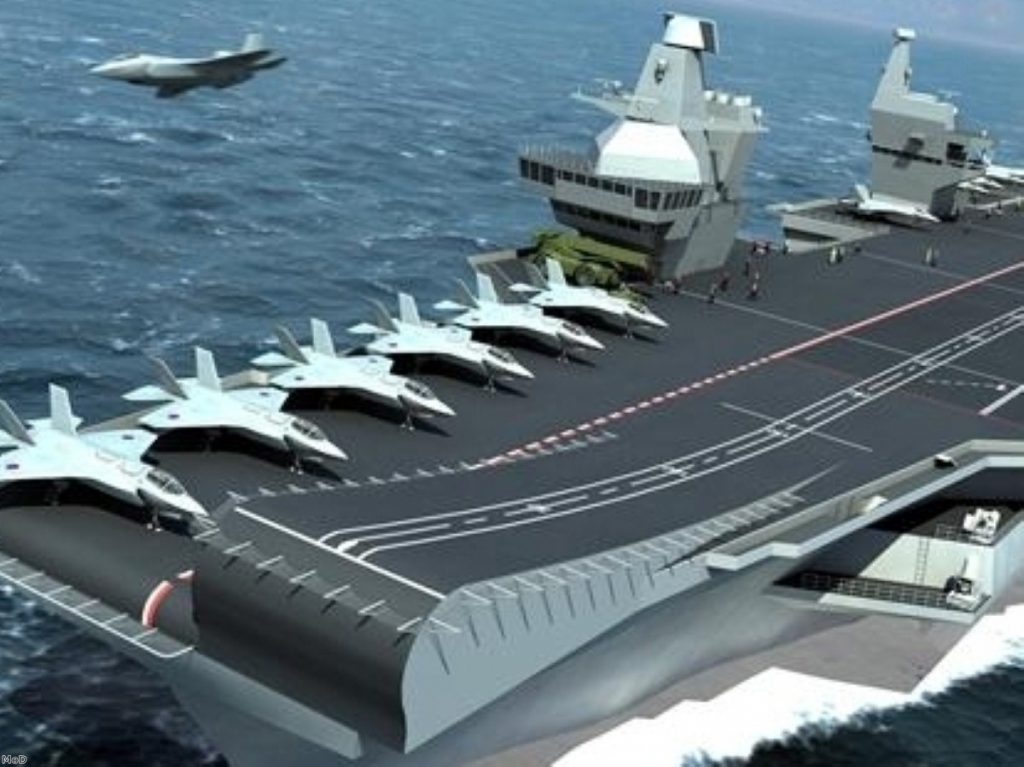Coalition cuts losses on aircraft carriers
The Royal Navy’s future is based around two aircraft carriers the coalition government had no choice but to accept, David Cameron told MPs today.
Speculation about the future of the two Queen Elizabeth class carriers dominated the approach of the strategic defence and security review (SDSR) published today.
In the end officials had no choice but to accept them because it would have been more expensive to cancel them, the prime minister said.


He told MPs this situation was the result of “an appalling legacy the British people have every right to be angry about”.
It will take until 2020 before the carriers have aircraft on them, triggering concern from some quarters that Britain may not be able to defend the Falklands from another attack by the Argentineans until then.
“We would not have started from here but the right decisions are now being made in the right way and for the right reasons,” Mr Cameron added.
Officials played down the ‘capability gap’ but could not address it directly. They argued there was no comparison between the Ark Royal-Harrier capabilities and those of the joint strike fighter-Queen Elizabeth carrier in terms of aircraft range and payload.
Defence secretary Liam Fox said “interoperability with our allies” would be possible on the carriers, with French and American aircraft able to operate from them. One would always be available for use while the other is in dock for refits and repairs.
“If you’re going to have an effective Nato in years ahead it seems better working between our allies seems to make sense,” he told the Today programme.
“If we’re spending a lot of money we need to be sure we’re getting maximum flexibility.”
But the SDSR proposed placing one of the carriers into “extended readiness”, service jargon for mothballing. It could even be sold, leaving Britain’s carrier capabilities relying on allies.
Other countries like China and Russia have struggled to build up a carrier capability because of the difficulties of landing and taking off from the vessels.
Naval figures warned that it could take up to 16 years from 2020 before Britain’s carriers became fully operational, the Telegraph reported.
Officials rejected the 16-year assessment, however.
Mr Cameron is reported to have told the Cabinet the decision was the toughest he has had to take since entering No 10 earlier this year.

